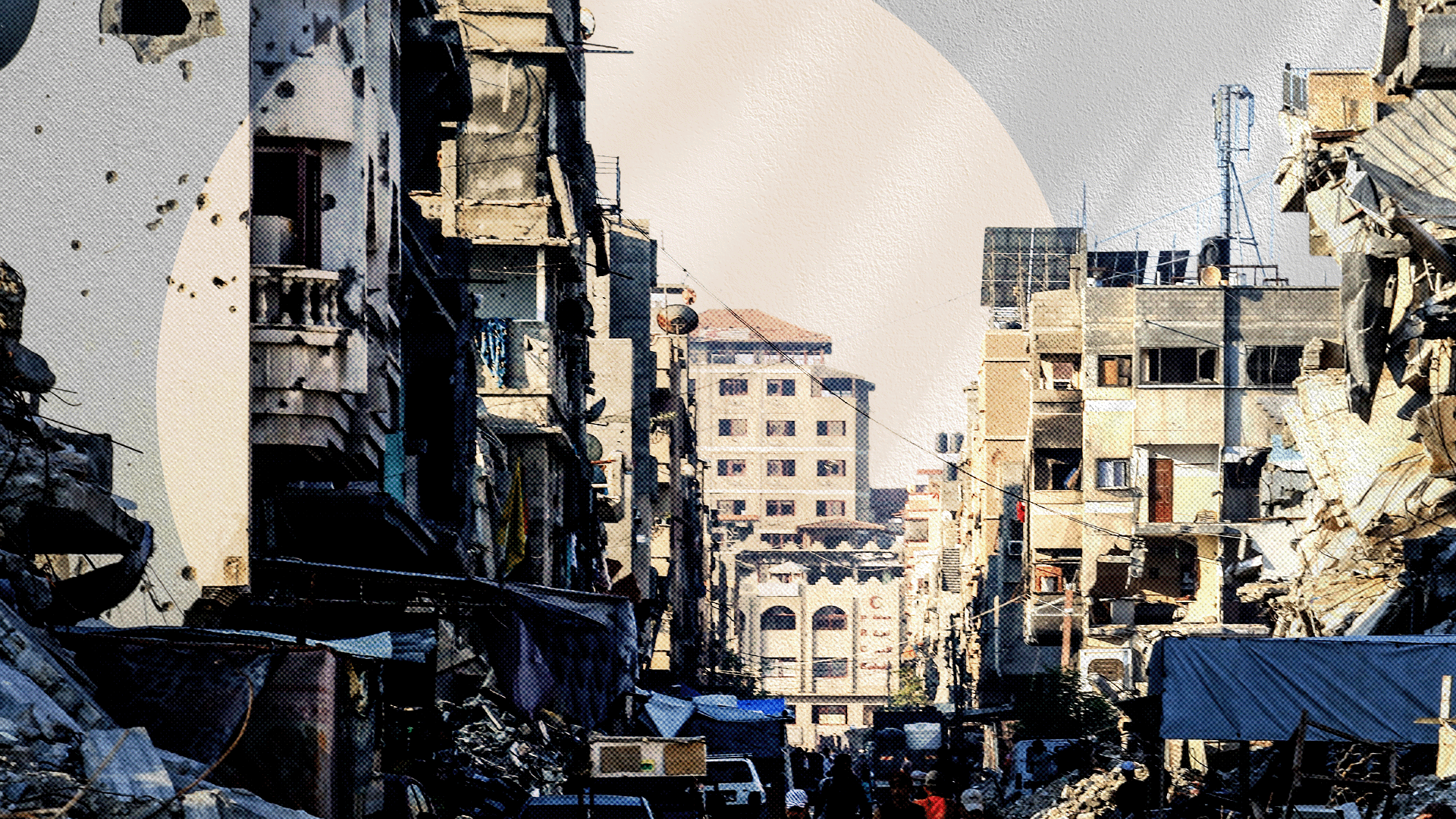Gaza war: Gate 96, the new crossing where aid struggles to get in
- Published
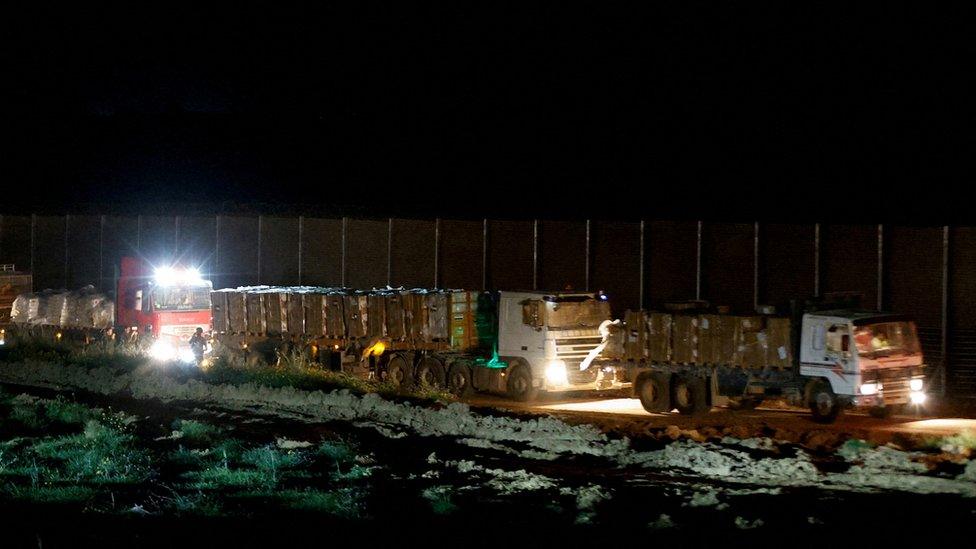
Aid lorries wait to enter Gaza at Gate 96
Gate 96 is little more than a hole in Gaza's border fence.
Its rutted track leads away towards Gaza City; a bumpy lifeline, quickly lost in thick evening darkness.
When the UN accuses Israel of deliberately keeping aid flows at a trickle, Israel points to Gate 96 - one of several new aid routes it has approved, along with airdrops and a maritime corridor from Cyprus.
Along the border fence, seven lorries loaded with food aid are lined up and waiting to cross, their engines slowly turning beneath the occasional boom of artillery.
This new crossing point takes them directly into Gaza's desperate northern areas, and avoids a long, difficult drive through the conflict zone.
But with the UN warning that northern Gaza is weeks away from famine, international demands to ramp up the amount of aid are getting more insistent.
Israel says it has facilitated more than 350 aid trucks into northern Gaza over the past month. Aid agencies say the territory as a whole needs 500 a day.
"The bottleneck of this chain does not lie with the IDF [Israel Defense Forces]," said Colonel Moshe Tetro, head of the army's Coordination and Liaison Administration, which handles approvals for aid convoys.
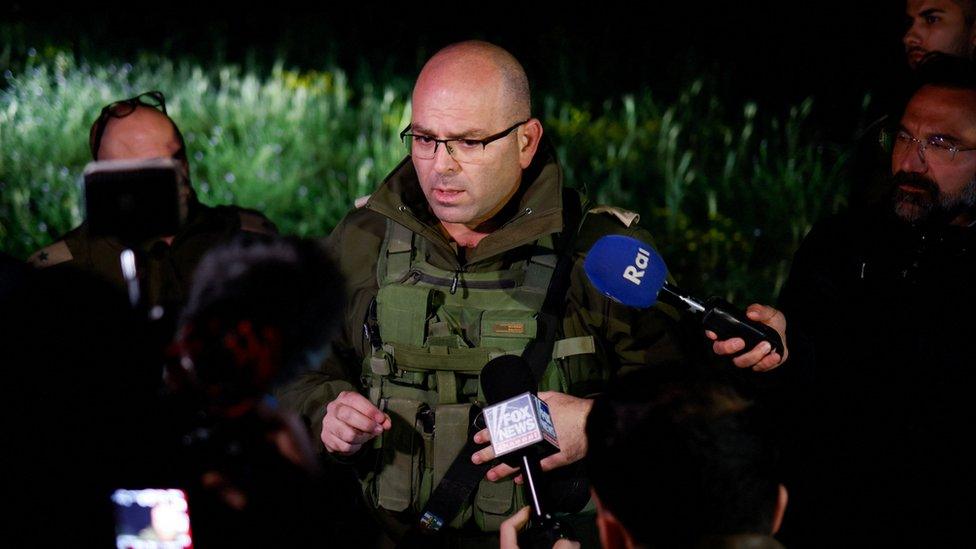
Colonel Moshe Tetro blamed aid agencies for the problems with humanitarian relief
He told the BBC that the army's job was to "facilitate the entrance of humanitarian aid into Gaza" and that the hold-ups lay with the logistical ability of aid agencies to distribute it on the other side.
He pointed to the trucks waiting to cross, saying the evidence was right in front of us. Twenty trucks had been approved to cross that night, he said, but only seven showed up.
"We took a lot of measures to enlarge the amount of humanitarian aid," he said. "But the UN and other international organisations have some bottlenecks regarding the amount of trucks, amount of truck drivers, manpower, working hours…"
Matthew Hollingworth, country director of the World Food Programme (WFP), was on one of the trucks idling by the border fence that night. He told the BBC there was a specific reason why the WFP had not been able to provide all 20 vehicles.
"On this particular convoy, we were given a limit of 15 vetted drivers by the IDF that were cleared to use this route, but only seven were available to us", he said.
Some of the approved drivers had gone to Gaza City the previous day, and were stuck there, he said. Even driving an empty lorry back through Gaza needs Israeli army approval.
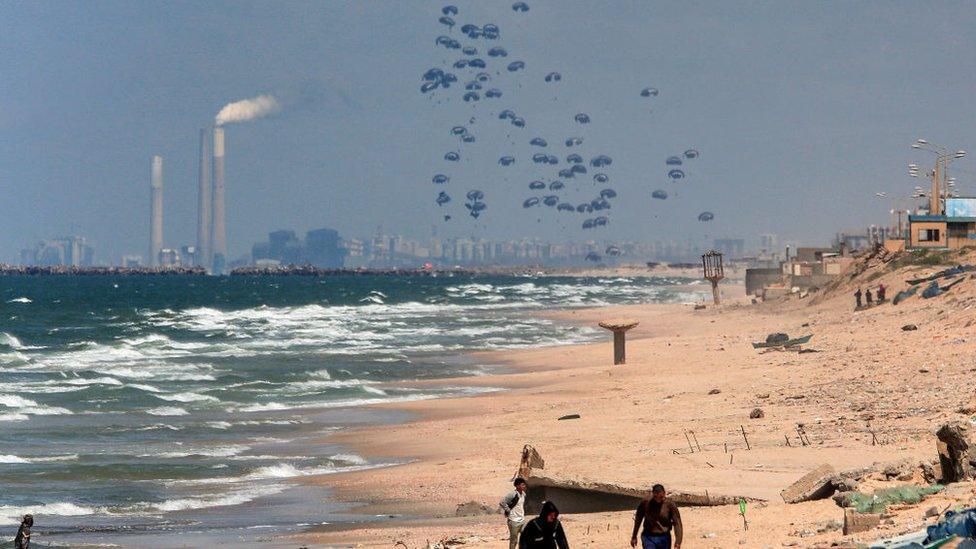
Countries have been dropping aid on Gaza from the sky, but agencies say not nearly enough is arriving
"We need 50, 60, 70, 80 truck drivers cleared to use these routes every single day," he said. "We need more entry points to northern Gaza and Gaza City, and we need early approvals so that we can run multiple convoys every single day."
Israel is keen to show the world it's allowing more aid into Gaza - but says it's not responsible for the amount of aid actually going in, or the ability of agencies to distribute it on the ground.
International law says different: that Israel has a duty, not just to open the gates, but to use all means available to it to get food and medicine to the people under its control.
Col Tetro tells me there is no shortage of food in Gaza, and that if Hamas wants to the change the situation there, they should end the war.
Asked about the warnings of famine, and images of acutely malnourished children in Gaza's hospitals, he repeated the same phrases, again and again.
"There is no starvation in Gaza," he said. "There is no shortage of food."
On Sunday, Gaza's main relief agency, Unrwa, said Israel had banned it from delivering any more food to northern Gaza.
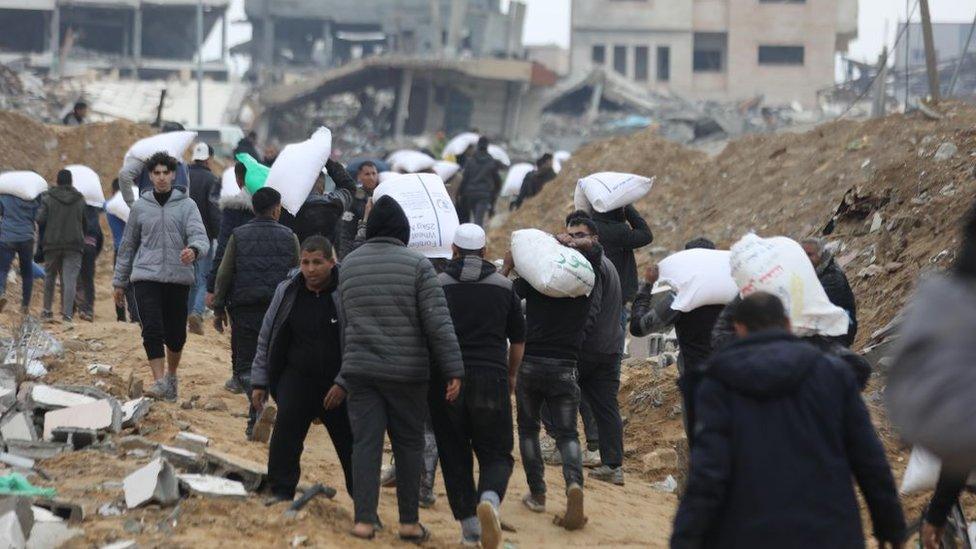
Unrwa has accused Israel of deliberately obstructing aid to Palestinians
Israel says the agency is linked to Hamas, and that it would continue to work with organisations that "are not involved in terror".
Unrwa's director, Philippe Lazzarini, said the ban was "outrageous" and accused Israel of intentionally obstructing aid.
The agency recently tried to restart convoys after a two month pause, which began when one of its lorries was shelled during a delivery in January.
At Gate 96, army vehicles buzz around the convoy, before the crossing point opens and the trucks move off into the night.
This slim channel between Israel and Gaza crossed only by aid and army; bringing food and war, life and death.
- Published16 January
